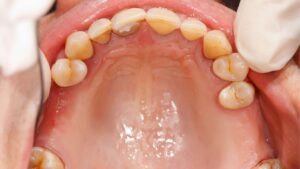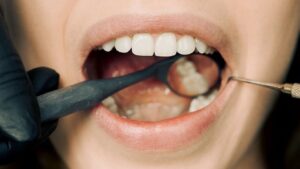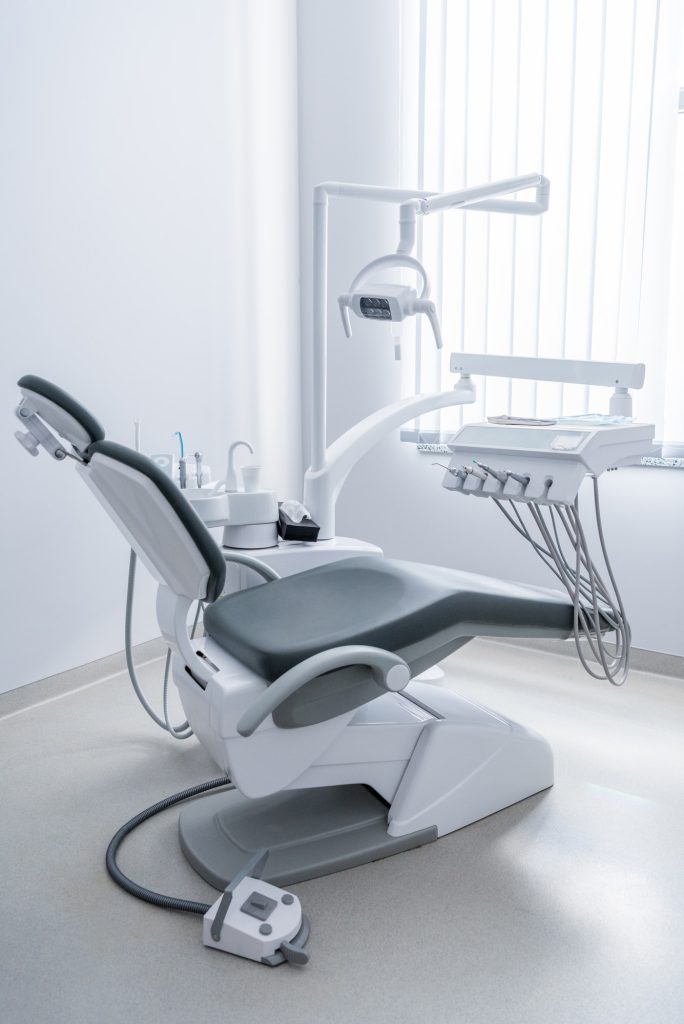Experiencing a toothache but finding no visible signs of decay or cavities can be both confusing and frustrating. While cavities are a common cause of tooth pain, there are several other dental issues that could be responsible for your discomfort.
If you have persistent or sharp tooth pain but no obvious decay, it’s essential to identify the underlying cause and seek professional treatment. We’ll explore the possible reasons for toothache without a cavity, when to see a dentist, and what treatment options are available.
Common Causes of Tooth Pain Without a Cavity
If there’s no visible decay, your toothache might be caused by other dental issues, such as:
1. Hairline Fracture or Cracked Tooth
A hairline fracture, also known as a cracked tooth, is a small, often invisible crack in the enamel or deeper layers of a tooth. These fractures can cause:
- Sharp pain when biting or chewing, especially on hard foods
- Sensitivity to hot, cold, or sweet foods and drinks
- Pain that comes and goes, rather than being constant
- Discomfort when releasing a bite
Since hairline fractures can be difficult to detect with the naked eye or even X-rays, a thorough dental examination is needed for diagnosis.
2. Gum Disease (Gingivitis or Periodontitis)
Gum disease occurs when plaque and bacteria accumulate around the gums, leading to inflammation and infection. Symptoms include:
- Dull, aching pain in the teeth and gums
- Swollen, red, or bleeding gums
- Persistent bad breath
- Receding gums exposing tooth roots
If untreated, gum disease can progress to periodontitis, which can cause tooth mobility and eventual tooth loss.
3. Teeth Grinding (Bruxism)
Many people grind their teeth at night without realising it, leading to:
- Generalised tooth pain or soreness
- Jaw pain, headaches, or tight facial muscles
- Worn-down enamel, making teeth more sensitive
- Small cracks or fractures in teeth
Wearing a custom night guard can help protect your teeth from further damage.
4. Sinus Infections (Sinusitis)
Sinus infections can cause referred pain in the upper teeth, particularly the molars. Signs that your toothache might be sinus-related include:
- Pressure or pain in the forehead, around the eyes, or cheeks
- Stuffy or runny nose
- Increased pain when bending forward
If your tooth pain is accompanied by cold-like symptoms, a sinus infection could be the culprit.
5. Receding Gums and Tooth Sensitivity
Gum recession exposes the more sensitive dentine layer of your teeth, leading to:
- Sharp pain when consuming hot, cold, or sugary foods
- Discomfort near the gum line
- Increased sensitivity when brushing
Using sensitive toothpaste and maintaining good oral hygiene can help manage symptoms.
6. Dental Abscess or Infection
A deep infection in the tooth or gum can cause severe, throbbing pain. Symptoms include:
- Swelling in the face or gums
- Persistent, intense pain
- Pus or drainage near the affected tooth
- Fever or general unwellness
A dental abscess is a serious condition requiring immediate treatment, such as a root canal or tooth extraction to prevent complications.
7. Nerve Pain or Temporomandibular Joint (TMJ) Disorder
Sometimes, tooth pain isn’t related to the tooth itself but rather nerve issues or jaw problems. TMJ disorders can cause:
- Pain near the jaw joint
- Clicking or popping sounds when opening or closing the mouth
- Headaches or earaches
A dentist or specialist can assess whether TMJ dysfunction is causing your discomfort.
Is Toothache But no Cavity a Dental Emergency?
In some cases, tooth pain without a cavity can be a dental emergency. Seek immediate dental care if you experience:
- Severe, persistent pain that doesn’t improve
- Swelling in the face, gums, or jaw
- Signs of infection, such as pus, fever, or difficulty swallowing
- A cracked or fractured tooth that worsens over time
Ignoring dental pain can lead to more serious complications, including infections that spread to other parts of the body.
When to See a Dentist for Tooth Pain
If your tooth pain is persistent or occurs when biting, it’s crucial to see a dentist as soon as possible. Ignoring a hairline fracture can lead to:
- Worsening cracks that eventually split the tooth
- Increased risk of bacterial infection, leading to an abscess
- The need for more extensive dental procedures, such as a root canal or extraction
Treatment Options For Toothaches Without Cavities
Your dentist will determine the best treatment based on the underlying cause of your tooth pain. Possible treatments include:
- Dental bonding or crowns for hairline fractures
- Deep cleaning or periodontal therapy for gum disease
- Night guards for teeth grinding
- Root canal treatment for infections
- Sinus infection treatment if sinusitis is causing referred pain
- Desensitising toothpaste or fluoride treatments for sensitivity
How to Prevent Hairline Tooth Fractures
You can lower your risk of developing hairline fractures by:
- Avoiding chewing on hard foods or objects (e.g., pen caps, ice, or hard lollies)
- Wearing a night guard if you grind your teeth while sleeping
- Using a mouthguard when playing contact sports
- Maintaining good oral hygiene to keep teeth strong and healthy
- Seeing your dentist regularly for check-ups to detect early signs of damage
Frequently Asked Questions About Toothache
Can a hairline fracture in a tooth heal on its own?
No, unlike bones, teeth do not heal themselves. A hairline fracture requires professional treatment to prevent further damage.
How do I know if my tooth pain is serious?
If the pain is severe, persistent, or accompanied by swelling, fever, or pus, seek emergency dental care immediately.
Can stress cause tooth pain without a cavity?
Yes, stress-related teeth grinding (bruxism) can lead to pain, sensitivity, and even microfractures.
Should I see a dentist if my tooth pain comes and goes?
Yes, intermittent pain can still indicate a developing issue, such as a cracked tooth or early gum disease.
Don’t Ignore Tooth Pain – Book Your Dental Appointment Today!
Tooth pain without a cavity can be caused by various dental issues, including hairline fractures, gum disease, teeth grinding, and even sinus infections. While not all cases require emergency treatment, it’s important to see a dentist for proper diagnosis and care.
At Radiant Smiles Dental Bundoora, we specialise in diagnosing and treating unexplained tooth pain. Book an appointment today to get expert care and lasting relief from discomfort.









